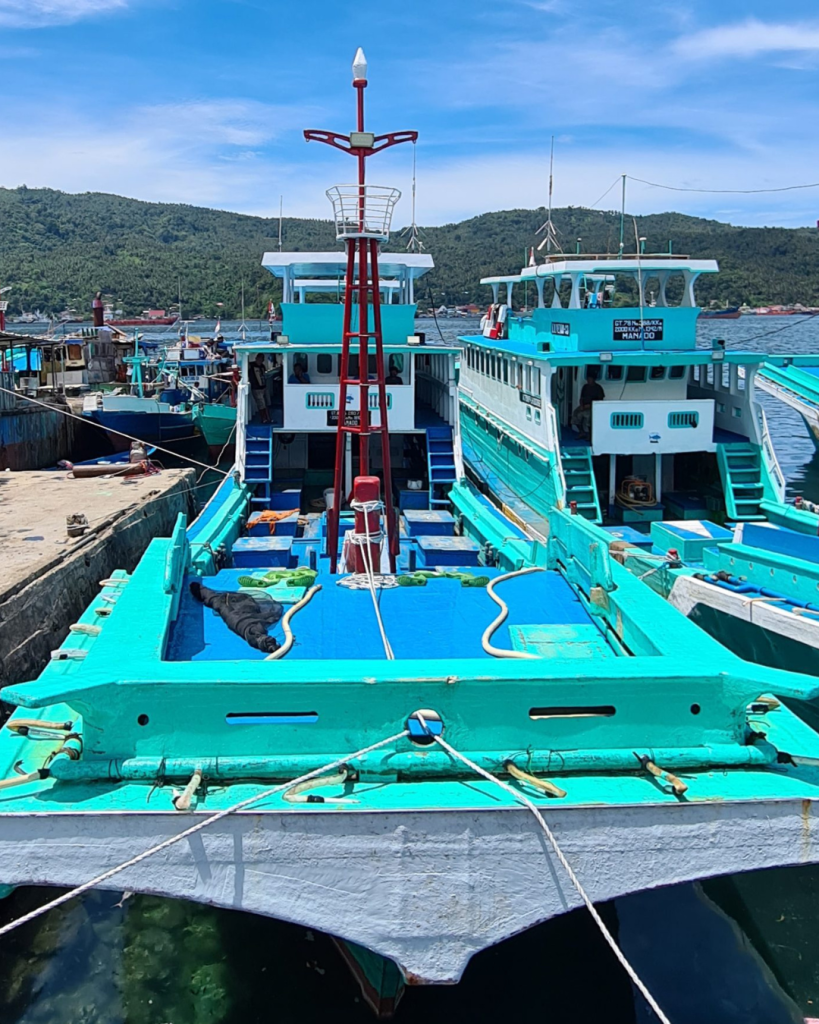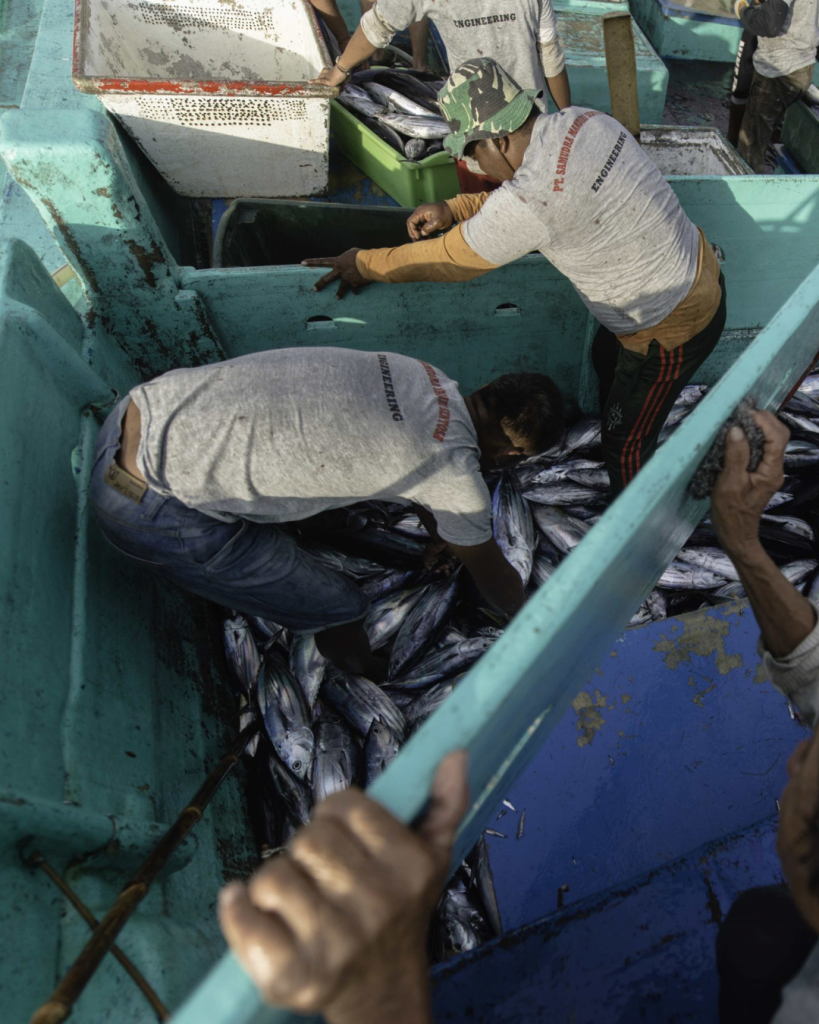The International Pole and Line Foundation (IPNLF), working alongside it’s members Fish Tales and PT Samudra Mandiri Sentosa and PT. Jaya Bitung Mandiri, and with the support of Asosiasi Perikanan Pole-and-line dan Handline Indonesia (AP2HI), incentivises best practices among tuna fishers through skill- and knowledge-building regarding their working conditions and labor rights.
Content for this case study was researched and created by the International Pole and Line Foundation (IPNLF) and adapted to RISE with their collaboration. The case study originally featured in ACTIONING THE MONTEREY FRAMEWORK: Stories from Around the World.
Disclaimer: This case study is intended to be used as an educational resource and does not indicate an independent evaluation or endorsement by FishWise.
Challenge
Labor issues and worker rights challenges continue to pervade the Global South and fishing industry. In order to ensure safe and fair working conditions for themselves, fishers need to understand their rights and feel empowered to exercise them.
Seldom are international ecolabels economically viable for small-scale and developing world fisheries to participate in due to the costs associated with getting certified and maintaining certification. Also, premiums from being certified are rarely realized by fishers as they are commonly absorbed in the supply chain before actually reaching fisher folks. The Fair Trade USA Capture Fishery Standard is unique in the sense that it was developed with these issues in mind, and can be used as a market-based tool which can help address ongoing inequity in the ocean economy. However, it is important to note that even Fair Trade certification may not still be financially or contextually applicable for all small scale fisheries around the world.
The entry level to participate in the certification is set against a core proportion of the standards environmental and social performance indicators, with every following year requiring progressive compliance until all performance indicators are addressed. This allows for the fishery to realize real market benefits of being certified at an early stage of the fisheries development and incentivizes maintained participation of fishery stakeholders. Robust traceability systems also ensure that a proportion of tuna sales go directly to the fishers, whereupon these premium funds are spent on pre-agreed social and environmental initiatives.
Strategy
Fair Trade USA certification helps ensure that people who are involved in harvesting and processing products are earning a fair wage under safe working conditions. Becoming Fair Trade certified will therefore help ensure social aspects of the fishery are addressed. In 2019, IPNLF was asked to initiate a Fair Trade programme for a pole-and-line (PL) fishery in Bitung, Indonesia.
Pole-and-line fishing methods have been used in this fishery, and more broadly in Indonesia since the early 1900’s. Crews of 20-50 fishers go out on wooden boats for fishing trips typically lasting between 5 and 14 days, landing up to 13,000 kg of tuna per trip. In total, 51 certified fishers are involved in this initiative, and including associated factory workers approximately 400 people are employed in this Fair Trade certified fishery.

Outcome
IPNLF partnered with AP2HI to establish Sengkanaung, a Fisher Group with 51 crew members and 3 vessels. Establishing a fisher group is core to addressing the empowerment objective in the Fair Trade USA certification in capture fisheries, as it aids in developing the skills necessary to effectively negotiate with organisations which influence their livelihoods. A new fishers association with 3 other pole-and-line fishing vessels are planned to be onboarded into the certification this year, which could mean an estimated 50 more fishers will soon be included.
Training activities with regards to understanding contracts, calculating pay or catch-shares, safety at sea, and access to healthcare were carried out with fishers in the target group. These capacity building exercises enable fishers to have the skills and autonomy to ensure their own labor and human rights are protected. Sengkanaung has established scholarship programmes to support school tuition fees for the children of group member families, procured grocery packages to support family members during the COVID-19 pandemic, and participates in scientific fishery data collection.
Looking Forward
In 2020, this was the first pole-and-line fishery in Indonesia (and second in the world) to be certified by Fair Trade USA. IPNLF and AP2HI continue to engage with fishers, canneries, producers and Sengkanaung in order to empower individuals through skill- and knowledge-building regarding working conditions and labor rights in the Indonesian tuna supply chain.

